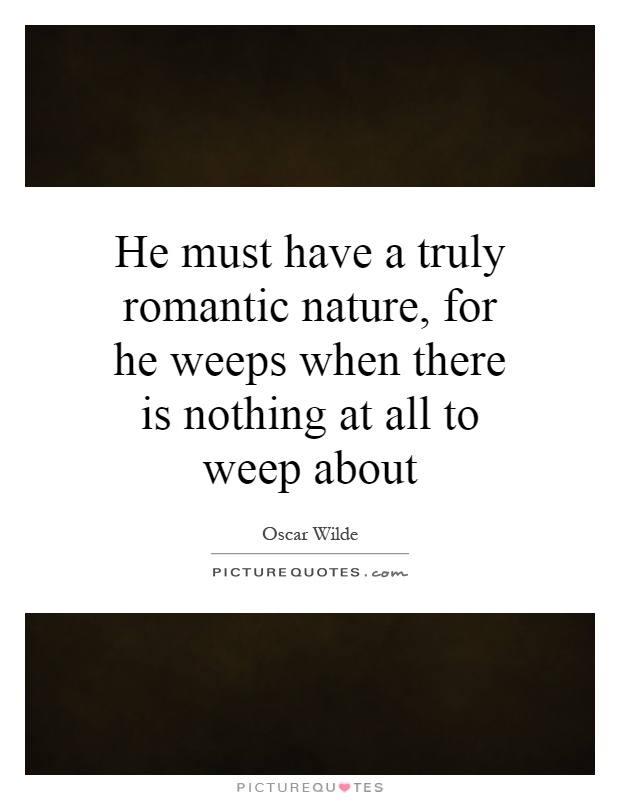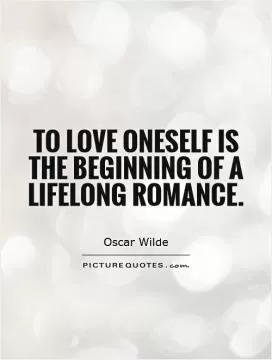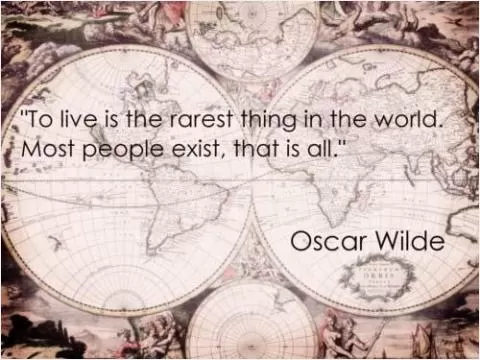He must have a truly romantic nature, for he weeps when there is nothing at all to weep about

He must have a truly romantic nature, for he weeps when there is nothing at all to weep about
Oscar Wilde, the renowned Irish playwright, poet, and author, was known for his wit, charm, and flamboyant personality. He was also known for his deep appreciation of beauty and his romantic nature, which often manifested in his works and personal life. The quote, "He must have a truly romantic nature, for he weeps when there is nothing at all to weep about," perfectly encapsulates Wilde's sensibility and emotional depth.Wilde's romantic nature was evident in his writing, particularly in his plays and poetry. His works often explored themes of love, beauty, and the human experience, and he had a keen eye for the nuances of emotion and desire. Wilde's characters were often driven by their passions and desires, and their actions were guided by their romantic inclinations. In plays like "The Importance of Being Earnest" and "Lady Windermere's Fan," Wilde used wit and satire to explore the complexities of love and relationships, while also celebrating the beauty and joy of romance.
Wilde's personal life was also marked by his romantic nature. He was known for his extravagant lifestyle, his love of art and beauty, and his passionate relationships. Wilde's love for his wife, Constance, and his close friendships with other artists and writers were central to his life, and he often expressed his emotions openly and passionately. Wilde's romantic nature also led him to engage in scandalous affairs and relationships, which ultimately led to his downfall and imprisonment.
Despite the challenges and hardships he faced, Wilde's romantic nature remained a central part of his identity. He continued to write and create, even in the face of adversity, and his works continued to inspire and captivate audiences around the world. Wilde's ability to find beauty and romance in even the darkest of circumstances is a testament to his enduring spirit and his belief in the power of love and art. In the end, Wilde's romantic nature was both a blessing and a curse, but it was also a defining aspect of his legacy as one of the greatest writers of his time.












 Friendship Quotes
Friendship Quotes Love Quotes
Love Quotes Life Quotes
Life Quotes Funny Quotes
Funny Quotes Motivational Quotes
Motivational Quotes Inspirational Quotes
Inspirational Quotes